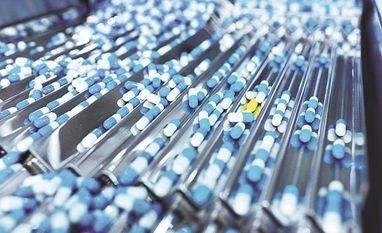However, the share of US business in the overall revenue of big pharma firms shrank in 2016-17 and in the first half of 2017-18, data shows. And, the trend is likely to continue for the next few quarters before the benefit from new drug launches start to accrue.
There is usually a time gap of 6-12 months from the date of the approval to the date of billing (after a launch in the US), said D G Shah, secretary-general of the Indian Pharmaceutical Alliance, which represents large Indian drug makers such as Sun Pharmaceutical Industries, and Dr Reddy’s Laboratories.
The chairman of a leading drug exporter to the US said that the trend is unlikely to change anytime soon and would likely continue for the first few quarters of FY19.
Moreover, thanks to the growing pricing pressure in the world’s largest generic drug market, the US, revenue growth has been slow. According to an ICRA note, domestic players are expected to face a 10-12 per cent pricing pressure on their US generic business, which may sustain for the next 12 months, thereby, negatively impacting profitability and cash flows before tapering off gradually. Shah said, “The US share in revenues of big pharma firms has shrunk, as the absolute export value to that country, too, has come down. Between January and August 2017, there was a 20 per cent year-on-year (y-o-y) drop in exports to US from India. In the calendar year 2016, the exports to US (valued at roughly $7.4 billion) had grown by 25 per cent y-o-y.” There are two reasons behind the price erosion - consolidation in the distribution channel and entry of new players (more drug approvals).
Gaurav Jain, vice-president, ICRA, said, “The US generic market is characterised by buying bulk volumes at lower prices and tend to have price erosion historically. However, pricing pressure on the US generic business has intensified over the past 12 months. The yearly price erosion, which stood at 5-7 per cent during Q2 FY17 for our sample companies (Dr Reddy’s, Torrent Pharma, Cadila Healthcare, Lupin, Sun Pharma, Glenmark, and Aurobindo) has gradually increased to low teens in Q2FY18 contributed by consolidation of distribution supply chain (trade partners) and faster ANDA approvals by US FDA after the implementation of Generic Drug User Fee Act.”
With the share of the US business going down, the share of domestic business in the overall turnover has gone up. But, according to the industry, this is not because the domestic formulations business has grown at a faster clip. In fact, the overall revenue growth has slipped into a negative territory for the ICRA sample — -2.2 per cent in Q4 FY17, -9.5 per cent in Q1 FY18, and -1.7 per cent in Q2 FY18. Analysts do not expect the trend to change in the third quarter either. Credit Suisse said, “In our view, the impact on base US sales should be 2-4 per cent. Full impact should be visible over next two quarters as the combined entity starts sourcing together.”
Cadila (which is leading the pack, with 66 drug approvals in 2017) has been the only exception. Analysts expect its third quarter performance to be good, riding on Tamiflu and generic Lialda sales.
To read the full story, Subscribe Now at just Rs 249 a month
Already a subscriber? Log in
Subscribe To BS Premium
₹249
Renews automatically
₹1699₹1999
Opt for auto renewal and save Rs. 300 Renews automatically
₹1999
What you get on BS Premium?
-
Unlock 30+ premium stories daily hand-picked by our editors, across devices on browser and app.
-
Pick your 5 favourite companies, get a daily email with all news updates on them.
Full access to our intuitive epaper - clip, save, share articles from any device; newspaper archives from 2006.
Preferential invites to Business Standard events.
Curated newsletters on markets, personal finance, policy & politics, start-ups, technology, and more.
Need More Information - write to us at assist@bsmail.in
)